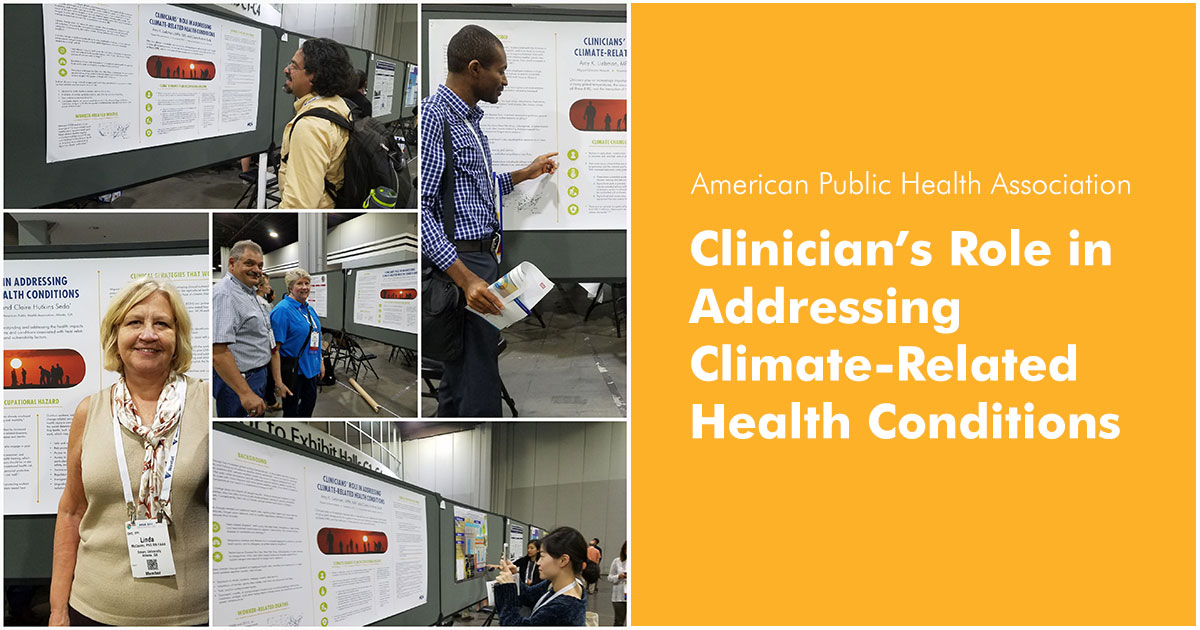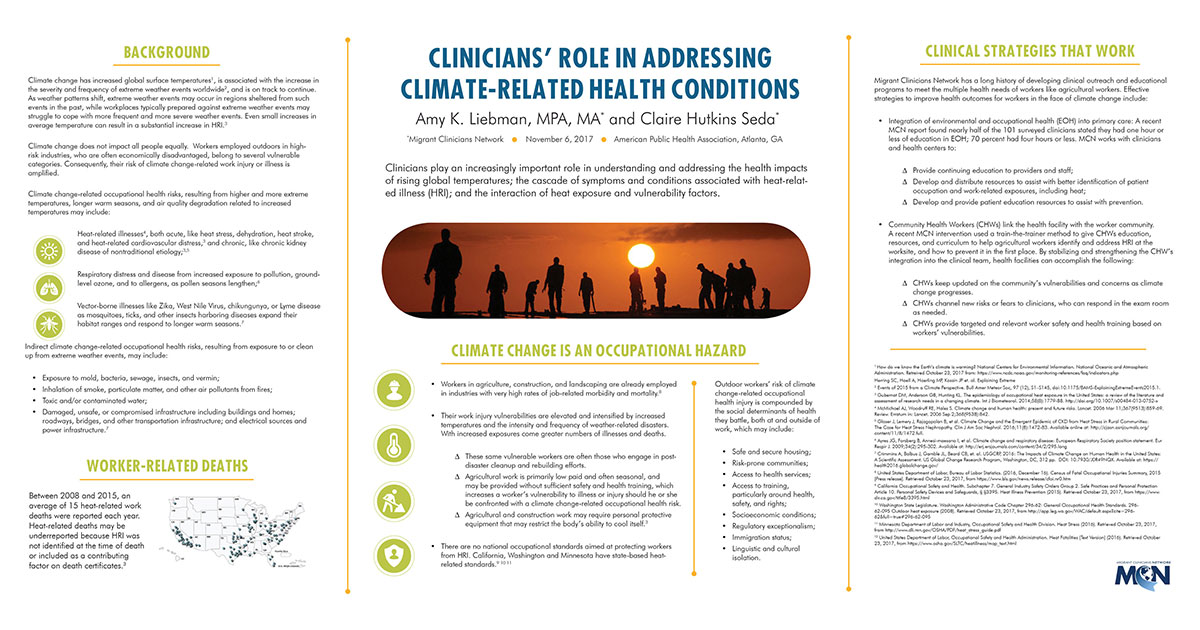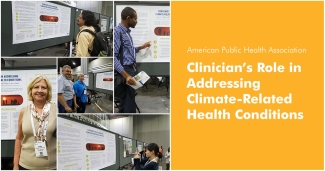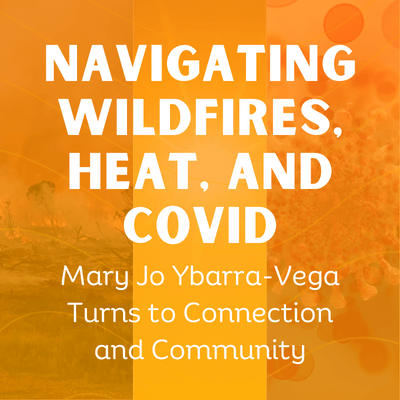MCN's APHA Poster Presentation: Clinicians' Role in Addressing Climate Change-Related Health Concerns

Last weekend, MCN’s Amy Liebman, MPA, MA, Director of Environmental and Occupational Health, headed to Atlanta for the American Public Health Association’s annual conference, boldly titled, “Creating the Healthiest Nation: Climate Changes Health.” Liebman presented MCN’s poster, “Clinicians’ Role in Addressing Climate Change-Related Health Concerns,” which was co-written by Claire Hutkins Seda and designed by Corey Johnson.
“Clinicians may play the single most important role in assuring that populations like agricultural workers aren’t left behind as their vulnerabilities increase as a result of climate change,” said Liebman. “Workers in agriculture, construction, and landscaping are already working in the most dangerous industries in the country, which will be more dangerous as the average temperature increases and weather events become more frequent and more severe. Climate change is a huge occupational health risk -- and clinicians need to act on that knowledge.”
The poster seeks to reposition the clinician’s role around climate change to emphasize that clinicians cannot just treat the symptoms of a health concern without looking at the broader picture of how climate change magnifies work injury vulnerabilities.
Climate change-related occupational health risks, resulting from higher and more extreme temperatures, longer warm seasons, and air quality degradation related to increased temperatures may include:
- Heat-related illnesses, both acute, like heat stress, dehydration, heat stroke, and heat-related cardiovascular distress, and chronic, like chronic kidney disease of nontraditional etiology;
- Respiratory distress and disease from increased exposure to pollution, ground-level ozone, and to allergens, as pollen seasons lengthen;
- Vector-borne illnesses like Zika, West Nile Virus, chikungunya, or Lyme disease as mosquitoes, ticks, and other insects harboring diseases expand their habitat ranges and respond to longer warm seasons.

It’s also important to note that vulnerable workers like day laborers are often those who arrive after a disaster to assist with cleanup. As major weather events become more frequent and more severe as a result of climate change, the need for post-disaster cleanup crews grows. Often, these workers are not provided with safety training or equipment to minimize their elevated risk of injury. Indirect climate change-related occupational health risks, resulting from exposure to or clean up from extreme weather events, may include:
- Exposure to mold, bacteria, sewage, insects, and vermin;
- Inhalation of smoke, particulate matter, and other air pollutants from fires;
- Toxic and/or contaminated water;
- Damaged, unsafe, or compromised infrastructure including buildings and homes; roadways, bridges, and other transportation infrastructure; and electrical sources and power infrastructure.
The poster emphasizes that workers in industries such as agriculture and construction are already facing a long list of social determinants of health, including lack of safe and secure housing, food insecurity, little or no access to health services, immigration status concerns, limited or no access to safety and health trainings, and linguistic and cultural isolation.
Yet, clinical strategies that MCN has pioneered have been successful in equipping and empowering vulnerable workers to better protect themselves -- and it starts with the clinicians. Integration of environmental and occupational health into primary care is an essential step in assuring that climate change-related health risks are recognized and evaluated. Community Health Worker integration into the clinical team augments clinicians’ efforts in better supporting the community through new changes. MCN’s approach focuses on training and technical assistance, relevant and engaging resources and tools, peer-to-peer networking, train-the-trainer methods, and more to address heat-related illness at the worksite, assure the identification of work-related exposures in the exam room, and support communication and integration of the health center with the vulnerable communities it serves, to assure the best health outcomes despite our changing climate.
View MCN’s Climate Change and Migration page to read more about how climate change affects migrant populations and to access useful resources.
Like what you see? Amplify our collective voice with a contribution.
Got some good news to share? Contact us on our social media pages above.
Return to the main blog page or sign up for blog updates here.
- Log in to post comments






